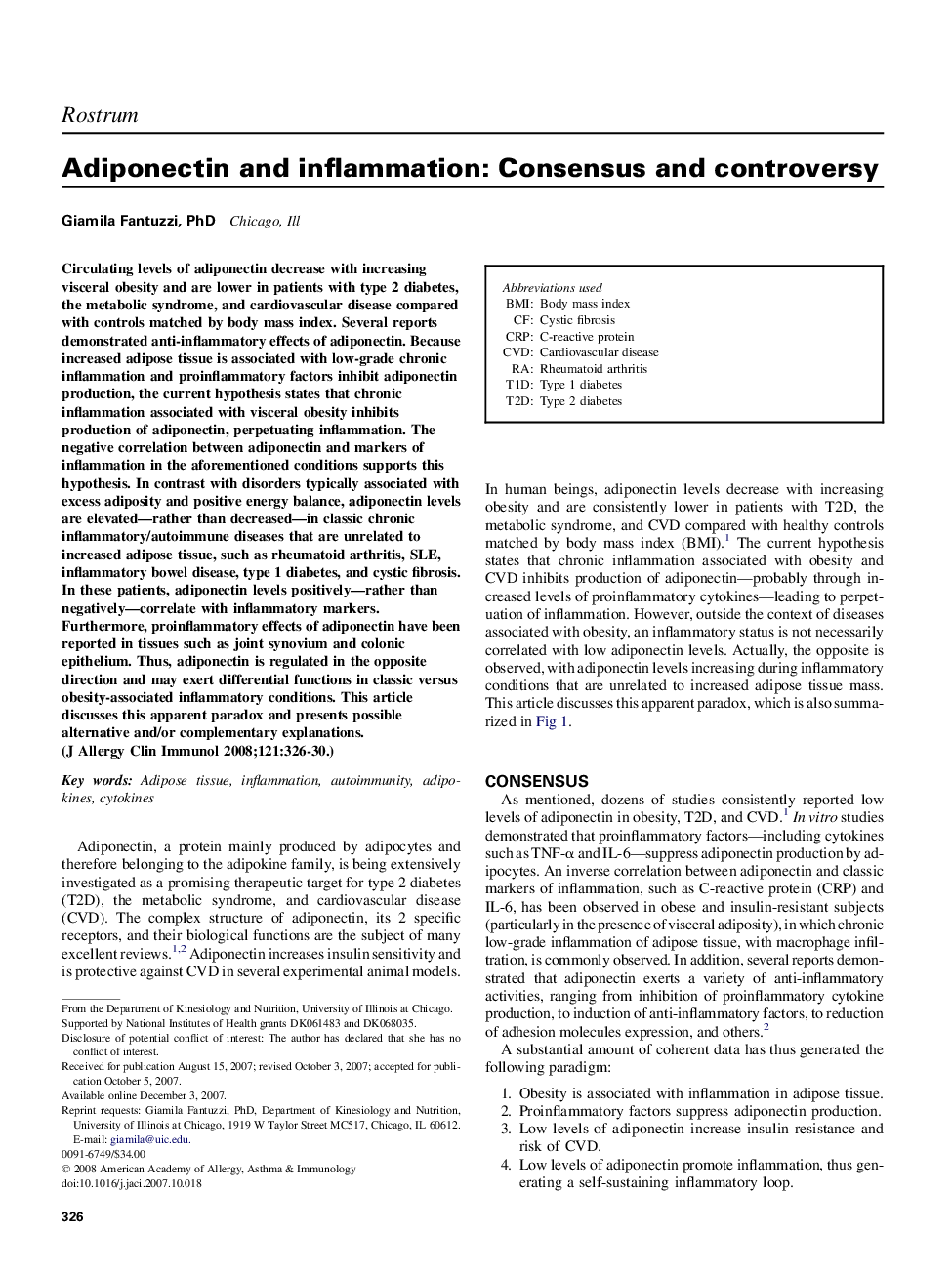| Article ID | Journal | Published Year | Pages | File Type |
|---|---|---|---|---|
| 3202750 | Journal of Allergy and Clinical Immunology | 2008 | 5 Pages |
Circulating levels of adiponectin decrease with increasing visceral obesity and are lower in patients with type 2 diabetes, the metabolic syndrome, and cardiovascular disease compared with controls matched by body mass index. Several reports demonstrated anti-inflammatory effects of adiponectin. Because increased adipose tissue is associated with low-grade chronic inflammation and proinflammatory factors inhibit adiponectin production, the current hypothesis states that chronic inflammation associated with visceral obesity inhibits production of adiponectin, perpetuating inflammation. The negative correlation between adiponectin and markers of inflammation in the aforementioned conditions supports this hypothesis. In contrast with disorders typically associated with excess adiposity and positive energy balance, adiponectin levels are elevated—rather than decreased—in classic chronic inflammatory/autoimmune diseases that are unrelated to increased adipose tissue, such as rheumatoid arthritis, SLE, inflammatory bowel disease, type 1 diabetes, and cystic fibrosis. In these patients, adiponectin levels positively—rather than negatively—correlate with inflammatory markers. Furthermore, proinflammatory effects of adiponectin have been reported in tissues such as joint synovium and colonic epithelium. Thus, adiponectin is regulated in the opposite direction and may exert differential functions in classic versus obesity-associated inflammatory conditions. This article discusses this apparent paradox and presents possible alternative and/or complementary explanations.
